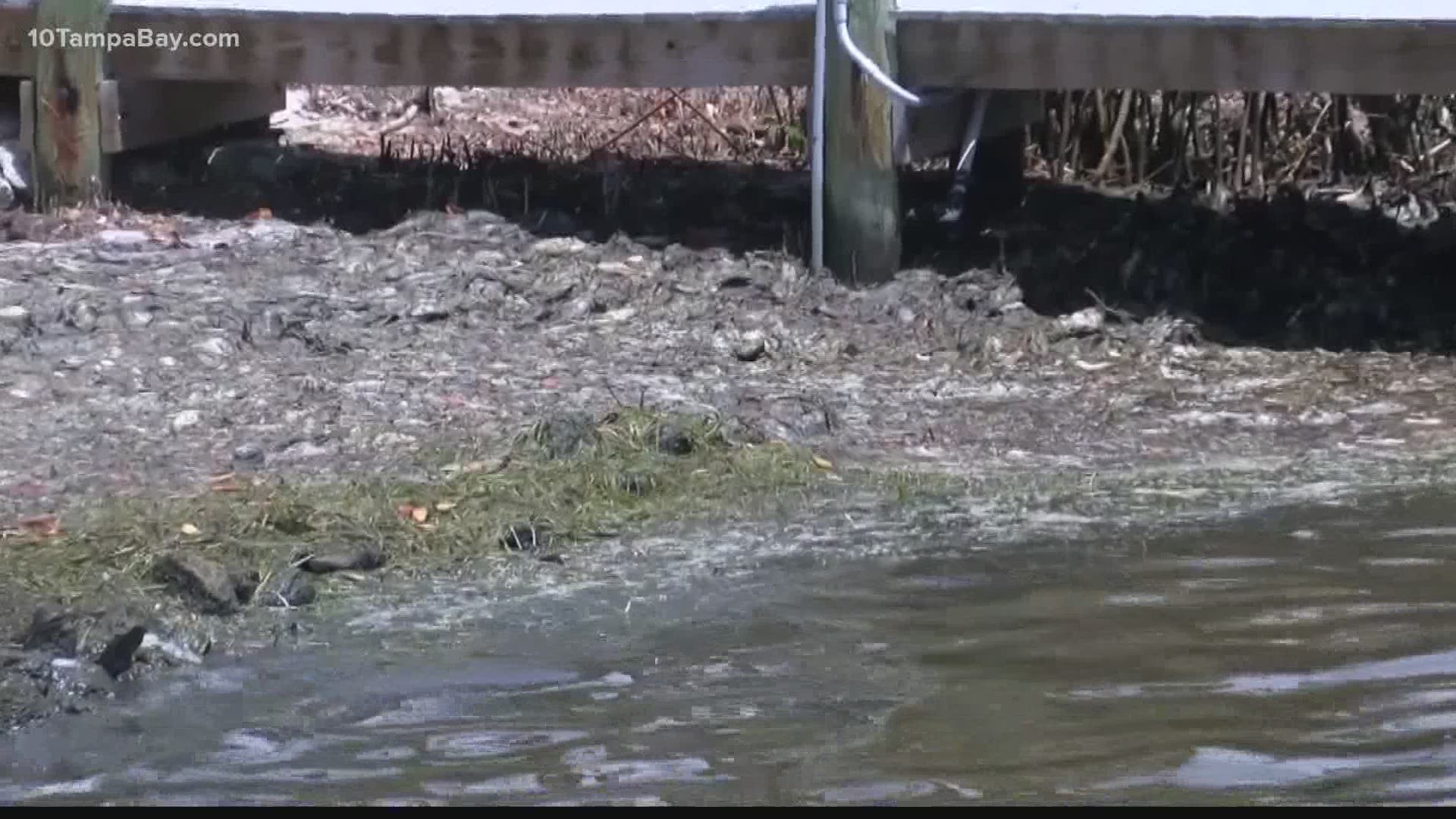LONGBOAT KEY, Fla. — After nearly 26-million gallons of raw sewage was discovered leaking from a broken pipe into Sarasota Bay, the town of Longboat Key and environmental crews began testing for the standard environmental hazards-- E. Coli and fecal coliform.
Both can cause environmental damage or even make people sick. But no one thought to test for something else that could cause contamination: COVID-19.
And, as we've reported previously, concentrations of the virus have already been found in sewage down in the Miami-Dade County area.
“Our wastewater is chock-full of the virus,” said Dr. Aileen Marty, an infectious disease doctor who has been following studies on high levels of COVID-19 in the sewer systems of South Florida.
“As long as we have COVID circulating in our population and people using the sewer systems to relieve themselves, that wastewater is going to have virus in it,” Dr. Marty said.
So, after the major spill into Sarasota Bay at the end of June, why did the local health department or state environmental officials not test for COVID-19?
Because they don’t have to.
In a statement from the Florida Department of Environmental Protection, a spokesperson told 10 Tampa Bay that research shows “standard municipal wastewater treatment practices should deactivate the virus that causes COVID-19.”
FDEP also cites research from the Centers for Disease Control which shows no confirmed reports of COVID-19 spreading through sewage systems.
“DEP continues to work with our counterparts at the Florida Department of Health (DOH) and U.S. Centers for Disease Control and Prevention (CDC) for human health protection related to wastewater.”
Researchers at the University of Florida agree the chances of contracting COVID-19 by swimming in the water seem low.
But UF Environmental Toxicologist Dr. Joe Bisesi admits there is much we still don’t understand.
“We don’t know enough, unfortunately, about coronavirus at this time to say for sure that there’s no risk there,” said Bisesi. “You can certainly measure the presence of the virus in the wastewater. I think it’s important to note those studies are measuring genetic material, so it’s not necessarily that the virus is still infectious. It just means there’s genetic material present in the wastewater.”
Dr. Bisesi says even if the virus did survive into Sarasota Bay, it would still need to find a way into your body.
“As you’re paddling, you could be splashing, which causes maybe some aerosolization, but contact with your skin per se is not the primary concern,” said Bisesi. “It’s more [of a concern] if you’ve touched something and put your hands in your mouth anywhere near your breathing area.”
While it's unknown if the virus could survive, Bisesi sees no reason not to test for COVID-19’s presence in the water.
“It’s fairly easy. I don’t see a reason why they wouldn’t consider it,” said Bisesi. “Certainly, we would be willing to accept some samples and see what we could do with them.”
A spokesperson for DEP tells 10 Tampa Bay there is a possibility the state could also explore the idea of testing the water for COVID-19 but stressed again there are no known cases of transmission through wastewater or swimming.
- Florida reports another 7,347 COVID-19 cases, record positivity rate
- Police: Human head found by jogger in St. Petersburg
- Graves may be under Tropicana Field, mayor's office says
- New hurricane season forecast predicts 20 named storms, 9 hurricanes
- Police: 7-year-old Florida boy dies after being shot
- Doctors rank which activities create the most risk for getting COVID-19
►Stay In the Know! Sign up now for the Brightside Blend Newsletter



